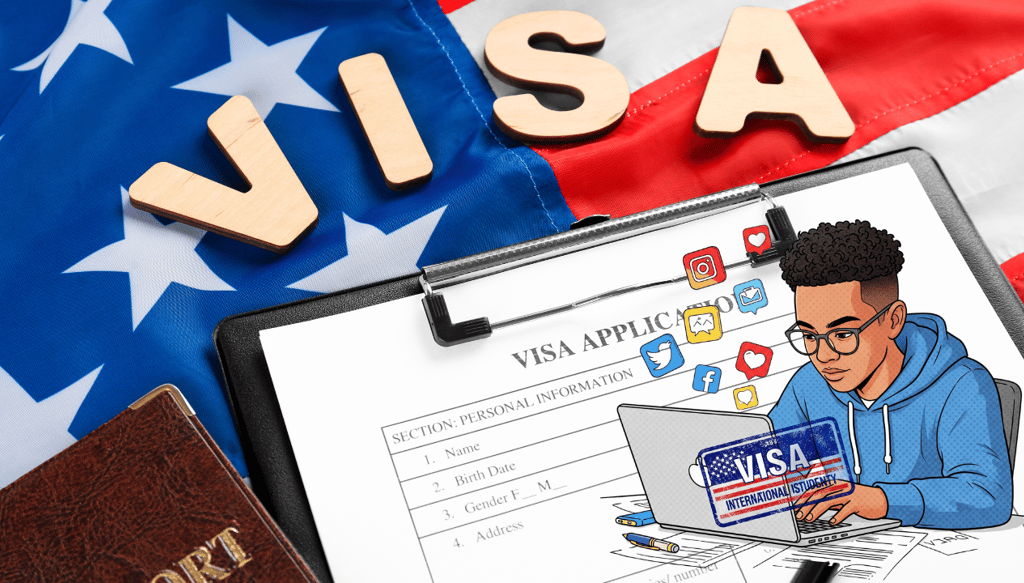US Student Visas: Make Your Social Media Public – What Applicants Need to Know
The US government now requires student visa applicants to make social media accounts public for vetting. Learn about the new policy, what it means for you, and how to prepare.
6/26/20253 min read


The dream of studying in the United States has long drawn students from across the globe. However, prospective international students are now facing an unprecedented level of scrutiny, with a significant new requirement: making their social media accounts public as part of the visa vetting process. This move, stemming from enhanced national security concerns, marks a substantial shift in US study visa applications.
What's Happening? The New Policy Explained
Effective immediately, applicants for F (academic student), M (vocational student), and J (exchange visitor) nonimmigrant visas are "requested" – and effectively required – to adjust the privacy settings on all their social media profiles to "public." This allows US consular officers to conduct a "comprehensive and thorough vetting" of applicants' online presence.
This isn't entirely new. Since 2019, visa applicants have been required to list all social media usernames or handles used over the past five years on their DS-160 application form. However, the mandate to make these profiles publicly viewable is a significant escalation.
Why the Crackdown? National Security and Vetting
The US State Department states that every visa adjudication is a "national security decision." The goal of this expanded vetting is to identify individuals who may pose a threat to US national security or who might engage in activities inconsistent with their visa purpose. Consular officers are specifically instructed to look for:
Hostile attitudes: Towards US citizens, culture, government, institutions, or founding principles.
Support for terrorism or extremist groups: Including any advocacy or aid to designated foreign terrorists.
Antisemitic content: Or any other content that demonstrates discriminatory or hateful views.
Evasiveness or lack of credibility: Keeping accounts private or omitting information may be seen as an attempt to hide something, potentially leading to denial.
What This Means for You, The Applicant
This new policy has several crucial implications for aspiring international students:
Mandatory Public Profiles: You must set all your social media accounts (Facebook, X/Twitter, Instagram, YouTube, LinkedIn, Reddit, TikTok, Snapchat, Pinterest, Tumblr, Weibo, Douban, and more) to public before applying. Failure to do so could result in visa denial and ineligibility for future visas.
Comprehensive Review: The vetting isn't just about your posts. Officers will review likes, comments, group memberships, interactions, and any public content from the past five years. They may also use other online resources and search engines beyond just social media.
Increased Processing Times: This added layer of scrutiny is likely to cause delays in visa processing. Consular officers will have a significant additional workload.
Self-Censorship Concerns: This policy raises concerns about freedom of expression and privacy. Some reports already indicate students are deleting posts or using "digital undertaker" services to scrub their online history.
Subjective Interpretation: The guidelines are broad, and what constitutes "hostile attitudes" or "concerning content" can be subjective, leading to uncertainty for applicants.
How to Prepare: A Checklist for Student Visa Applicants
Navigating this new landscape requires careful preparation. Here’s what you should do:
Audit Your Online Presence: Go through all your social media accounts, going back at least five years. This includes not just popular platforms but any online forums, blogs, or communities you've been a part of.
Adjust Privacy Settings: Make sure every single account is set to "public." Do this before you submit your visa application.
Review Content Critically: Remove or archive any content that could be misinterpreted as hostile, discriminatory, or supportive of concerning ideologies. This includes posts, shared articles, likes, comments, and even memes.
Ensure Consistency: Your online information should align with the details in your visa application. Inconsistencies can raise red flags.
Be Mindful of Future Posts: Even after applying, remember that your online activity could still be monitored. Maintain a professional and responsible online presence.
Seek Legal Advice (If Needed): If you have specific concerns about your social media history or complex situations, consider consulting with an experienced immigration attorney.
Apply Early: Given potential delays, apply for your visa well in advance of your program start date.
Monitor Embassy Websites: Stay updated on specific instructions and appointment availability from the US embassy or consulate in your region.
The US student visa process has become more complex and invasive. While the rationale is national security, the impact on international students' privacy and academic aspirations is undeniable. By understanding these new requirements and diligently preparing your online footprint, you can improve your chances of a successful application.
info@mywingsmyway.in
SUBSCRIBE
Do you love travelling and discovering new places? Subscribe to our newsletter and get the latest travel information's & tips delivered to your inbox.
